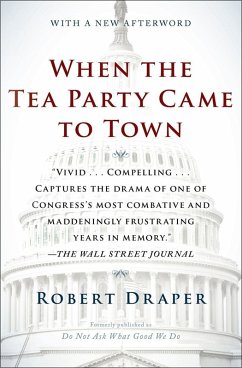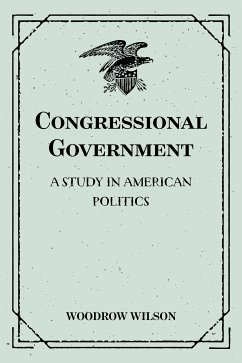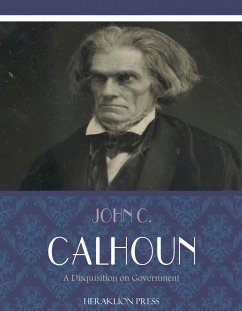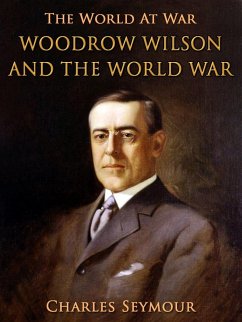
The Ghost In The White House (eBook, ePUB)

PAYBACK Punkte
1 °P sammeln!
The White House is haunted by a vague helpless abstraction;"by a kind of ghost of the nation; called The People...,Excerpt: "No one has ever nominated a President in a book before. I do it because a book can be more quiet, more sensible and thoughtful, more direct and human, and closer to the hearts of the people, than a convention can. A book can be more public too-can be attended by more people than a convention. Only a few thousand people can get into a convention. A hundred million can get into a book. All in the same two hours, by twenty million lamps thousands of miles apart, the people ...
The White House is haunted by a vague helpless abstraction;"by a kind of ghost of the nation; called The People...,Excerpt: "No one has ever nominated a President in a book before. I do it because a book can be more quiet, more sensible and thoughtful, more direct and human, and closer to the hearts of the people, than a convention can. A book can be more public too-can be attended by more people than a convention. Only a few thousand people can get into a convention. A hundred million can get into a book. All in the same two hours, by twenty million lamps thousands of miles apart, the people can crowd into a book. So in this book, as I have said, I am merely acting as the secretary or employee of the hundred million people. I am writing a book a hundred million people would write if they could, expressing for them the kind of President for the next four years of our nation-the most colossal four years of the world, the people have ordered in their hearts. We are weary of politicians'' politicians. We want ours. Politicians may not be so bad but during the war they do not seem to us to have done as well as most people. In the dead-earnest of the war, with our Liberty Loan and Red Cross and Council of Defense, and our dollar a year men we have half taken over the government ourselves and we feel no longer awed by the regular political practitioners or government tinkerers. They are not all alike, of course, but we have turned our national glass on them and have come to see through them-at least the worst ones and many thousands of them-all these busy little worms of public diplomacy building their faint vague little coral islands of bluff and unbelief far far away from us, out in the great ocean of their nothingness all by themselves."
Dieser Download kann aus rechtlichen Gründen nur mit Rechnungsadresse in A, B, BG, CY, CZ, D, DK, EW, E, FIN, F, GR, HR, H, IRL, I, LT, L, LR, M, NL, PL, P, R, S, SLO, SK ausgeliefert werden.













